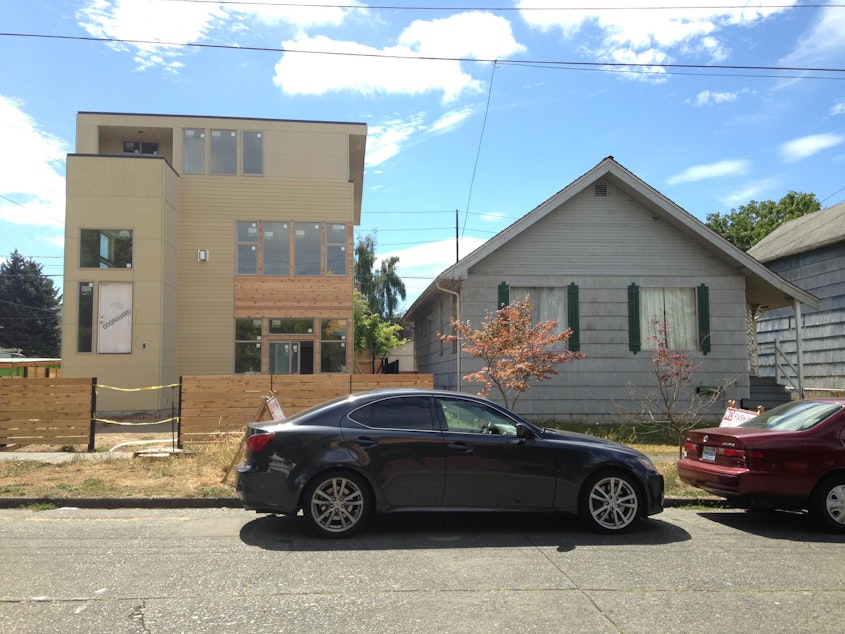Washington state could require cities to allow more multi-family housing options

Should cities in Washington be forced to allow "missing middle" types of housing — duplexes, triplexes and sometimes small apartment buildings — on land currently reserved for single family homes? That’s a question currently before the state Legislature.
State law currently requires cities to plan for growth. But it doesn't tell them how and where to grow. The result is that cities develop their own plans, with ambitious goals. But many cities fail to meet their own growth targets.
One reason is that efforts to open up single family zones to more development often meet local resistance. Many voters in these areas blame any kind of growth with runaway housing costs, and don't believe claims that more new housing is part of the solution. In response, a large number of city plans for growth show great deference for single family zones.
Thus, these plans are often hampered in how much they can realistically achieve. For housing advocates, this is like solving a puzzle with 60% of the pieces missing.
House Bill 1782 (and its closely associated companion Senate Bill 5670) proposes to allow more "missing middle" kinds of housing in single family zones, bypassing cities that have failed to allow for it.
Sponsored
If passed into law, the bill would not ban single family homes. But it would force cities of 20,000 people or more to open up neighborhoods dominated by single family homes to more affordable kinds of housing. These include duplexes, triplexes, and four-plexes.
Near major transit stops, cities would also need to allow small apartment buildings with up to six units, townhomes, stacked flats, and courtyard apartments.
Some politicians say they are opposed to forcing through unpopular growth plans — they may not escape criticism from their constituents just because the state forced their hand.
At a public hearing Tuesday, Federal Way Mayor Jim Ferrell said developing a growth plan that local voters will accept is a process best left to local leaders who know their constituents best.
"I think ultimately this comes down to local control," Ferrell said. "Please consider an alternative to this state mandate that provides communities with incentives to make affordable housing a priority, but maintains a city's ability to determine the best way to address this critical issue."
Sponsored
In her testimony, Auburn Mayor Nancy Backus asked if her city, which recently developed a growth plan of its own at significant expense, would now have to throw that plan away in favor of the proposed state standards. She too called for local control.
Others, including Bothell Mayor Mason Thompson, pushed back on the idea that local control is the answer.
"That is fantasy," Thompson said. "If local control would solve our housing crisis, we wouldn’t have a problem to solve. We desperately need the state to act.”
Thompson is part of a growing number of voices calling the need for housing a social justice issue that can no longer be ignored.
A representative for Governor Jay Inslee's office said the governor is working with local leaders who are currently opposed to the bill, to make sure the proposed law meets their needs.
Some supporters of the bill, however, fear that too much compromise with local control proponents could be a step backward.




